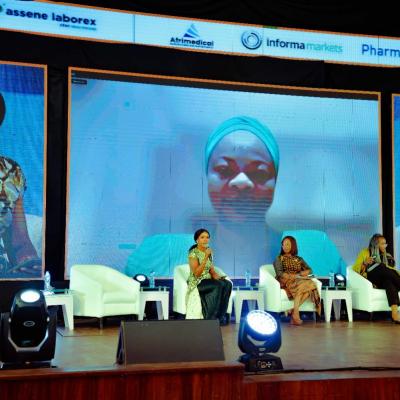Frontpage News (3256)
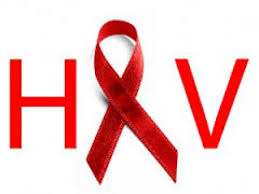 Following the economic recession of 2016, the Nigerian government developed an Economic Recovery and Growth Plan for 2017-2020 with three broad strategic objectives: restoring growth; investing in human capital; and building a globally competitive economy that achieves agriculture and food security, industrialization, improved transport infrastructures and energy sufficiency.
Following the economic recession of 2016, the Nigerian government developed an Economic Recovery and Growth Plan for 2017-2020 with three broad strategic objectives: restoring growth; investing in human capital; and building a globally competitive economy that achieves agriculture and food security, industrialization, improved transport infrastructures and energy sufficiency.
Of these three objectives, one stands out: recognizing the importance of investing in human capital. This represents a major shift by the government, as it previously focused mostly on developing infrastructure—a move that came at the expense of other sectors, including healthcare.
 The President of the National Association of Nigeria Nurses and Midwives, AbdlRauf Adeniji, has said the nurses in hospitals across the country are not enough.
The President of the National Association of Nigeria Nurses and Midwives, AbdlRauf Adeniji, has said the nurses in hospitals across the country are not enough.
Adeniji spoke during a programme organised by the Nursing and Midwifery Council of Nigeria and NANNM in conjunction with the Ministry of Health in Abuja to launch the Nursing Now campaign. He said Nigeria had less than 120,000 nurses for its 200 million population.
 Nigerian pharmacists say they do not stock the Lassa fever drug of choice, Ribavirin, because it is not a medication for the treatment of “typical day-to-day ailments.” They said that only the Federal Government that can stock products like that.
Nigerian pharmacists say they do not stock the Lassa fever drug of choice, Ribavirin, because it is not a medication for the treatment of “typical day-to-day ailments.” They said that only the Federal Government that can stock products like that.
The pharmacists and operators of pharmaceutical outlets disclosed this to PUNCH HealthWise as Nigeria continues to fight the haemorrhagic fever that has continued to spread throughout the nation. At least 12 states have recorded over 200 confirmed cases of Lassa fever outbreaks, with about 41 deaths, according to the Director General,
 Officials of the Ministry of Health’s Port Health Services at the Murtala Muhammed International Airport, Lagos, have put two passengers who arrived from China under surveillance as the nation continues to monitor the border posts against the deadly Coronavirus.
Officials of the Ministry of Health’s Port Health Services at the Murtala Muhammed International Airport, Lagos, have put two passengers who arrived from China under surveillance as the nation continues to monitor the border posts against the deadly Coronavirus.
This happened as countries around the world, including the United States and Australia, said they would deny entry to all foreign visitors who had recently been in China, where the virus first emerged in December. The death toll from the new virus, which is officially called 2019-nCov, hit 259 on Saturday.
WHO: Garlic, Salt Water Can’t Prevent Coronavirus Infection
Site Admin The World Health Organisation (WHO) has said that eating garlic and regularly rinsing nose with saline solution will not guard against coronavirus infection (2019-nCoV). Information obtained from WHO’s website on Monday dispelled various myths and rumours surrounding the 2019-nCoV that could potentially harm the public’s health.
The World Health Organisation (WHO) has said that eating garlic and regularly rinsing nose with saline solution will not guard against coronavirus infection (2019-nCoV). Information obtained from WHO’s website on Monday dispelled various myths and rumours surrounding the 2019-nCoV that could potentially harm the public’s health.
WHO refuted some of the myths and rumours, noting that garlic was a healthy food that may have some antimicrobial properties. “However, there is no evidence from the current outbreak that eating garlic has protected people from 2019-nCoV,” it said.
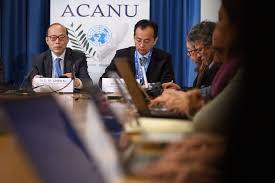 The World Health Organization said Monday it was working around the clock with internet and social media giants to combat widespread misinformation surrounding the deadly novel coronavirus outbreak.
The World Health Organization said Monday it was working around the clock with internet and social media giants to combat widespread misinformation surrounding the deadly novel coronavirus outbreak.
WHO chief Tedros Adhanom Ghebreyesus warned of the dangers posed by "the spread of rumours and misinformation" as China saw a surge in deaths and infections from the highly contagious virus. "We have worked with Google to make sure people searching for information about coronavirus see WHO information at the top of their search results," Tedros said in opening remarks to the UN health agency's Executive Board meeting in Geneva.
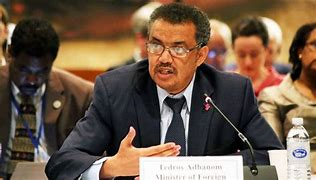 The World Health Organisation (WHO) has stressed the need to urgently improve cancer services in low-and middle-income countries. The organisation made the call in a statement posted on its website on Tuesday to mark the World Cancer Day on February 4.
The World Health Organisation (WHO) has stressed the need to urgently improve cancer services in low-and middle-income countries. The organisation made the call in a statement posted on its website on Tuesday to mark the World Cancer Day on February 4.
It warned that the world would see a 60 per cent increase in cancer cases over the next two decades, if current trends continue. The WHO said that the greatest increase, which was an estimated 81 per cent in new cases, would occur in low-and middle-income countries, where survival rates were currently lowest.
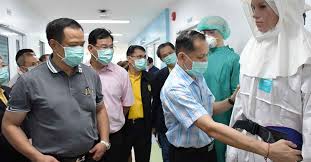 As doctors scramble to contain the fast-spreading coronavirus, a potent brew of anti-retroviral and flu drugs has emerged as a possible defence against the mysterious sickness that has killed hundreds.
As doctors scramble to contain the fast-spreading coronavirus, a potent brew of anti-retroviral and flu drugs has emerged as a possible defence against the mysterious sickness that has killed hundreds.
But the science is inconclusive on whether they are actually effective and experts say the successful treatment could take years. Here is what we know -- and don't know -- about the drugs deployed against the SARS-like virus.
WHO outlines steps to save seven million lives from cancer
Site Admin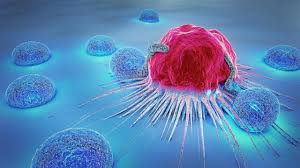 The World Health Organisation (WHO) on Tuesday spelt out the need to step up cancer services in low and middle-income countries. WHO warned that, if current trends continue, the world will see a 60 per cent increase in cancer cases over the next two decades.
The World Health Organisation (WHO) on Tuesday spelt out the need to step up cancer services in low and middle-income countries. WHO warned that, if current trends continue, the world will see a 60 per cent increase in cancer cases over the next two decades.
The greatest increase (an estimated 81 per cent) in new cases will occur in low- and middle-income countries, where survival rates are currently lowest. This is largely because these countries have had to focus limited health resources on combating infectious diseases
Coronavirus: WHO, ACDC, partners ramp up support for Nigeria
Site Admin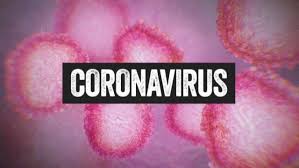 The Africa Centre for Disease Control (ACDC), the World Health Organisation (WHO) and other partners have Nigeria and other African countries of adequate international support to check and prevent coronavirus.
The Africa Centre for Disease Control (ACDC), the World Health Organisation (WHO) and other partners have Nigeria and other African countries of adequate international support to check and prevent coronavirus.
Dr Chikwe Ihekweazu, Director-Genera, Nigeria Centre for Disease Control (NCDC), made this known in an interview with the News Agency of Nigeria(NAN), on Thursday in Abuja. Ihekweazu said that the support was geared towards ensuring that Nigeria was better prepared to respond, in the event of an outbreak of 2019-nCoV.
More...
Coronavirus: $675 million needed to protect vulnerable countries
Site Admin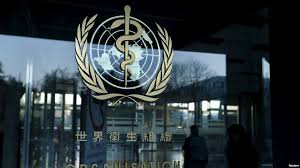 With the spread of the new coronavirus not showing any signs of slowing down, the World Health Organisation said about $675 million would be needed to stop further spread of the outbreak globally.
With the spread of the new coronavirus not showing any signs of slowing down, the World Health Organisation said about $675 million would be needed to stop further spread of the outbreak globally.
This call was made on Wednesday at a press conference in Geneva where the WHO Director-General, Tedros Ghebreyesus, briefed the world on the current status of the disease. As at the time of the briefing, 25 countries have reported confirmed cases of the new coronavirus, including China, where 24,363 people had contracted
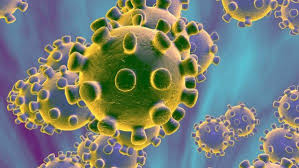 The World Health Organisation (WHO) says the coronavirus outbreak is not yet pandemic, but a global public health emergency. Coronavirus has claimed 425 lives, with more than 20,000 reported cases in China and 158 cases outside that country.
The World Health Organisation (WHO) says the coronavirus outbreak is not yet pandemic, but a global public health emergency. Coronavirus has claimed 425 lives, with more than 20,000 reported cases in China and 158 cases outside that country.
WHO, which stated this at a news conference on Tuesday in Geneva, said the agency was hopeful that that the virus would be contained. The UN agency acknowledged that it was challenging to contain the virus because of global mass movement.
Coronavirus: WHO to ship reagent test kits to 20 African countries
Site Admin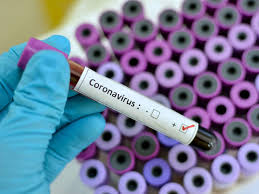 In its bid to ensure the rapid detection of the novel Coronavirus, the World Health Organisation (WHO) has said that plans are underway to ship reagent test kits to about 20 African countries. This is just as the organization is maintaining that the risk assessment of Nigeria remains high following the high travel between Nigeria and China.
In its bid to ensure the rapid detection of the novel Coronavirus, the World Health Organisation (WHO) has said that plans are underway to ship reagent test kits to about 20 African countries. This is just as the organization is maintaining that the risk assessment of Nigeria remains high following the high travel between Nigeria and China.
Speaking during a sensitisation meeting with journalists in Abuja, the WHO Technical Officer for Health Emergency, Dr. Dhamari Naidoo said that one of the main priorities of the WHO is to pay close attention to the major nine ports of entry into the country. While calling for more collaborative efforts and need for early detection of the infection, she said that already about 28, 000 cases of coronavirus have been confirmed globally.
We ‘re ready to contain Coronavirus, if it breaks out in Nigeria
Site Admin The Minister of Health, Prof. Osagie Ehanire, says Lagos State, in collaboration with the Ministry of Health, is well prepared and ready to contain the novel Coronavirus (2019-nCoV) infectious disease, if eventually it breaks out in Nigeria.
The Minister of Health, Prof. Osagie Ehanire, says Lagos State, in collaboration with the Ministry of Health, is well prepared and ready to contain the novel Coronavirus (2019-nCoV) infectious disease, if eventually it breaks out in Nigeria.
Ehanire gave this assurance on Sunday, while briefing newsmen after inspecting facilities at the Emergency Response Readiness designated for the Coronavirus victims at the Mainland Hospital, Yaba in Lagos. “I can say that Lagos State is well prepared; there is high level of readiness here, and also the awareness is there,” he said.



